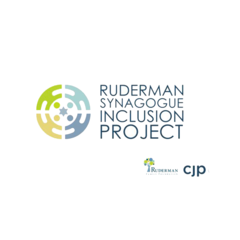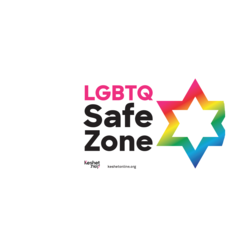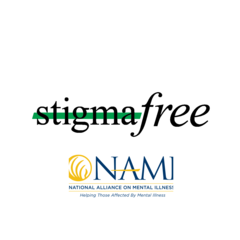Yom Kippur 2006
Shana Tova This is a season when we are asked to humble our souls. I consider myself quite humbled to come before you to speak to you today about my spiritual journey. In fact, I have always felt humbled by the warmth and generosity of the Isaiah community and thankful to be welcomed by it. It began in 1976, when Susan and I were first welcomed by Harry and Ruth Cronson at the first Friday night service we attended at TempleIsaiah. I also feel lucky. I feel lucky for finding a community that gives me fulfillment after, metaphorically speaking, wandering in a spiritual Wilderness.
Today is my father’s yahrzeit. My mother died 19 years after him and Wednesday, October 4 is her yahrzeit. So it makes sense to talk about my spiritual journey today, since, like for many of us, my journey started with my parents, who were not of the same religion.
My father was Protestant, and he often spoke about his difficulties growing up as a minority in the mostly Catholic Dorchester and East Boston neighborhoods. My mom was Catholic and the stronger religious influence in my childhood. I attended parochial school in Wilmette, a suburb of Chicago, until the 8th grade. Religion was important to me growing up. I took it seriously. I was challenged with trying to understand God; I enjoyed the tradition and the stories of the Bible. I respected the importance of ethics as a road map for living in the world. I was an altar boy and I even considered, if only for an instant, the priesthood as a vocation. The scene was not perfect, however. My father did not participate and showed no interest in religion. I never forgot my lingering discomfort that my father seemed spiritually isolated from my mother, my brother and myself. That would play out later for me.
There were not many Jews in the 1950’s in Wilmette, which was mostly Protestant. In 1962, when I moved to Commack, a then-mushrooming town on Long Island, my religious sentiments began to change. There, I experienced the Catholicism of the East coast, where being Catholic meant you were in the majority, as compared to the Midwest. I just don’t think religion was appreciated the same way. Even the more devout Catholics seemed weary of the obligation of weekly Church attendance. The sermons were too often dominated by the pastor’s disapproval of his shrinking collection plate. “At least”, I remember him saying more than once, “I have my Bingo. I don’t know what I would do without my Bingo”. That Parish, at least, seemed stagnant, but the parishioners weren’t departing either–it would have been sinful to do so. If they did leave, the parish community seemed so large but not really connected that—who would notice; who would care?
I attended college at NYU’s Bronx campus during the height of the Vietnam conflict. I hoped my religion would offer wisdom and guidance about the moral struggle all of us were feeling, especially those of us who were of draft age. Sadly, what I heard from the pulpit was neither courageous nor helpful, and I know there must be many people, including those who continued on as Catholics, who regretted their Church’s missed opportunities to help their flock.
I recall one sermon in particular in which the pastor spoke out, not to condemn the war, but to denounce the war protests. The war, after all, was fighting a godless Communism. The biggest problem with Viet Nam, he said, was the pornographic magazines available to our young soldiers in military PX’s.
Now I hope my words are not misconstrued, since the Catholic Church these days is a too-easy punching bag for many, both inside and outside that faith. The criticism often obscures the social good the Church performs on a daily basis. The Church does offer comfort to many of its flock, and that includes my own brother, who to this day continues to be a devout Catholic. My Catholicism was meaningful for me for a long time when I was younger, but it just stopped working for me.
I mark that pro-Viet Nam sermon as the end of my connection to Catholicism. Socially, at NYU I was introduced for the first time to a majority Jewish community of people my own age. Although I joined a jock fraternity that was mostly Christian, (except for our Jewish fraternity president, Ken Moss, who was then NYU’s star shotputter), I still tried to integrate into the Jewish student majority. This was not as easy at it first looked to me.
Being non-Jewish and an athlete made this difficult. Many students seemed wary-- almost circumspect, of us athletes in the late 60's. Then I met one attractive co-ed who, to my delight, was quite friendly. When I asked her out, however, I was disappointed when she told me she could not date me, since I was not Jewish. Her observant father, who happened to own a Kosher food company, she added, would especially not approve.
Though that young lady lost her chance, I continued undaunted. In my second year of law school, I met and fell in love with a Jewish girl, whom I married a year and a half later. Susan was clear about her commitment to Judaism and her commitment to raise Jewish children. She did not require that I be Jewish, but both before and after we were married, she tutored me in her religion by sharing it. I was impressed by her commitment; and I was interested.
I was also both comforted and impressed by Susan’s parents. They never even hinted about conversion to Judaism. Susan’s father had left Berlin in 1938, and was naturalized then quickly drafted in 1941. As many of you heard Susan tell you before the showing of the “Ritchie Boys” film, he used his native Berlin-accented German serving the U.S. Army as an interrogator of German prisoners. He was a self-made NY business man who always treated me with love and respect. The same is true for Susan’s mother, who had escaped Germany through Switzerland in 1940, and had been sheltered in Chambon in central France, which itself became the subject of another documentary film. On account of what they had experienced and had overcome because of being Jewish, they were to me, Jewish royalty; yet they treated me like I was royalty.
Though I did not keep a diary of my thoughts and feelings about my decision to convert to Judaism, I can imagine what types of entries I might have made if I had written one, which with literary license, I have reconstructed:
Dear Diary: Last night Susan and I went to Friday night services at TempleIsaiah. She heard that Isaiah has a “nice young Rabbi, Cary Yales” who everyone likes. The atmosphere was very intimate and we were welcomed warmly by the hosts. I did feel conspicuous because I was not Jewish, but even though I didn’t really feel totally comfortable there, I can’t say that I was uncomfortable. This Hebrew thing is a real puzzle, however. I kept thinking that everyone would notice that I had no clue when the congregation read the Hebrew aloud, but maybe not knowing Hebrew is either not that unusual or people are non-judgmental about it. I wonder if I ever could get used to it.
Dear Diary: Christmas is a real problem. I wish I could share the warm feelings I get about the season more with Susan, but she doesn’t even want a Christmas tree. She thinks it’s a religious symbol. It doesn’t matter to her that Christians don’t feel that way. We’ll just have to work it out. I have tried to imagine what it must feel like not thinking of myself as a Christian. I can’t quite do it. On the other hand, I can’t really imagine myself being Catholic again.
Dear Diary: Susan and I went to an adult education class at lsaiah, taught by Rabbi Yales, with the title of “the Jewish View of Jesus”. I was impressed by the thought that if Jesus had walked through Lexington today, he would not have been comfortable with any of the Churches he saw, but only with the synagogues. I really don’t know why, but it was the first time I could imagine myself being Jewish. I am not there yet, though. Christmas is still a problem. My mother’s feelings are still a problem. She invited me to go to Church with her when she visited. I declined, and felt a little bad about it. Even though it was not comfortable saying no, it would have been much less comfortable going with her.
Dear Diary: My son, Ben had his 1st birthday last month. For a long time I knew I did not want repeat my father’s reality of being isolated from his own family by religion. So Susan and I enrolled in a “Intro to Judaisim class”. Rabbi Yales is teaching it. It has been great meeting people who are thinking about the same types of things that have been going through my head for years. Now that the course has finished, I kind of expected to be divinely inspired to convert. I guess, unlike Christianity, Judaism is not about miracles.
Dear Diary: Ben is 6 and his brother, Doug is 4. They are old enough to be aware of God and the spirit. Ben has asked Susan questions about religion, and about my religion. As usual, she gave accurate, yet appropriate answers. He was satisfied. I, however, was not satisfied. I decided it was time to take the plunge and become Jewish, although I skipped the Mikevah, and that “other” procedure. I had been waiting for the right time for a long time. I guess I thought a bright light would appear spontaneously and show me the way, like the stories about the saints I heard growing up. I’ve concluded that it’s just not going to happen like that. I opted for a public declaration of conversion, which took place on May 18, 1990 at a Friday Night Service at TempleIsaiah, because I wanted a clear dividing line. It was quite moving for me and for many other people who approached me after the ceremony. One of the comments that pleased me the most was Bob Atkind telling me “I had no idea that you weren’t born Jewish!”.
Dear Diary: Susan signed us up for something called “family connection”. It opened us up to a lot of new people to whom we have grown very close and solidified other friendships. Through Torah study sessions in family connection I discovered I have a passion for studying and writing about Torah. Who knew! At first I felt reluctant to take the time to participate. I found that each time I took another step in getting more involved in the Isaiah community, the more satisfaction I got out of it. In a D’Var Torah I presented at a TempleBoard meeting, I compared getting involved with the Temple to Moses first turning, then cautiously approaching the burning bush.
Dear Diary: As I think about it now, I think maybe I have always been Jewish. Like the Jewish people, I had to leave what troubled me—my “Mizrayim”. For I time I was spiritually adrift—my “Wilderness”. Just like Moses, when I saw the “burning bush” I decided to take one step closer. That led to other steps, and brought me to where I am today— here telling you about it.
When I was growing up, it was okay to ask some questions about religion, but other questions were not. When you are Jewish you never have to stop asking questions. It is all part of living life. I eventually discovered that one of the things I wanted was to be closer to my community, because I care for them a lot. I needed to be firmly inside this tent, not just occasionally poking my head inside. For long time, I hoped to reach the end of my spiritual wrestling so I could make a decision. But now I know now that decision must come first. There is no beginning and no end to the wrestling.
In summary, I believe all of us eventually have to face questions about God, our life’s purpose and whether our community is giving us comfort and how we are contributing to the greater good of our community.
At this point, after speaking about wrestling with such profound questions, and especially because I am Jewish, I’m going to pose some questions to my audience. How is it for each of you? Did you see a “burning bush” this year. Did you stop or did you walk by? Who will struggle with you as you grope around in the dark searching for it?
When I look back at my spiritual journey it is clear to me that it was my fate to struggle, just like Jacob and Israel, but I have the most satisfaction knowing that I am struggling alongside and surrounded by my Isaiah community. As this holy day draws to a close, I would wish the same for each of you. Thank you, and
Shana Tovah G’mar Chatimah Tovah





